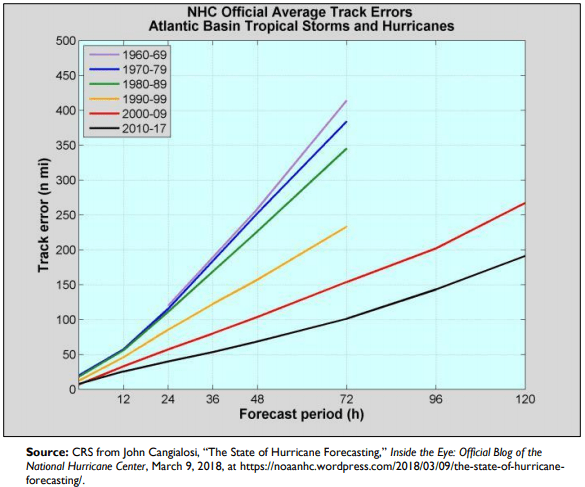Today, Members of the Subcommittee on Coast Guard and Maritime Transportation participated in a roundtable discussion on a recently released report ‘Impact of the U.S. Jones Act on Puerto Rico.’ The report provides data-based comparative analyses of the real impacts of the Jones Act that have not been reported before. The findings demonstrate that the Jones Act has no impact on either retail prices or the cost of living in Puerto Rico, but we still need to hear from their delegation. An update will be provided on any significant outcomes.
El Faro and its 33 crew members tragically perished October 1st, 2015 after the vessel sank during Hurricane Joaquin 40 miles northeast of Crooked Island. Today, the House passed maritime legislation (HR 6175) that included provisions on new equipment requirements relating to distress signaling and locating technology. In addition, the bill calls for an audit on how effective safety management plans are, and for vessels to require float-free voyage data recorders. Check out this summary if you are interested in what other maritime regulations the House included in the legislation. Hopefully Congress will unanimously agree to include language that will, to the best of their ability, prevent vessels from sailing into dangerous waters such as the Duck Boat that sank last week.
There is still no nominee for Assistance Secretary for Fish, Wildlife and Parks. This is another administration appointee that must be confirmed by the Senate. With roughly 9,000 employees, the US Fish and Wildlife Service has a mission to conserve, protect and enhance fish, wildlife and plants. It is critical to have the right leadership in the agency to provide proper environmental consultation processes and enforce environmental regulations such as the Coastal Barrier Resources Act, which affects communities along the East Coast and Gulf Coast. Due to the time it takes for approval in the Senate, and a lack of interest in this effort from an environmentally insensitive administration, this likely won’t happen this year.
The House zeroed out funding for climate change in the budget of the agency within the Department of Health and Human Services that collects data about potential environmental challenges to public health. The agency says that it considers data collection related to the causes of algal blooms and the effects of smoke from wildfires to be important, though apparently not important enough to fund. Simply including the $0 figure as a line item sends a strong message.

Source : DEPARTMENTS OF LABOR, HEALTH AND HUMAN SERVICES, AND EDUCATION, AND RELATED AGENCIES APPROPRIATIONS BILL, 2019
Source: https://www.gpo.gov/fdsys/pkg/CRPT-115hrpt862/html/CRPT-115hrpt862.htm
Republicans’ attempt to deconstruct the Endangered Species Act was defeated by Democrats, Ranking Member Adam Smith said in a press release. He stated that the provisions would have been “extremely harmful to the environment” and that, “although environmental riders have no place in a defense bill, Republicans have again attempted to undermine the Endangered Species Act.” This is a separate effort by the GOP that runs parallel to the provisions laid out by the Trump Administration.
The Congressional Research Service has released a report on the National Hurricane Center’s (NHC) accuracy on forecasting storms and issuing warnings. Since 2009, the error in ability to track the position of eye of the storm 72-hours in advance has decreased by 50 miles, and since 1960 our margin of error has been reduced by roughly 75%.

What is most concerning to us coastal folks is the model’s inability to accurately predict storm surge and flooding, which are most commonly the greatest sources of damage, following wind and wave action. While the agency is improving its accuracy in forecasting location, intensity and storm surge, those factors are not necessarily correlated with each other. To complicate things further, intensity (wind speed) has an undetermined correlation with precipitation, and neither of these are necessarily correlated with storm surge or eye location. Needless to say, the NHC is working to update its models to better forecast storm surge and flooding, alongside other criteria, so that residents and business may better prepare themselves for what is really coming.
Oceanside, California – The City of Oceanside missed its annual beach replenishment from the Oceanside Harbor this year due to a lack of permitting from the Corps by the Regional Water Quality Control Board. The City has been subject to severe erosion over the past decades and continues to be sand starved due to the coastal modifications and hardened structures that have been implemented up and down the shoreline. These features trap sand and prevent natural sediment flow from replenishing beaches. A big swell on the West Coast is creating dangerous conditions for tourists and businesses using the San Diego Harbor, and the problem is exacerbated by shallow waters that have formed at the entrance of the harbor. City officials worry that putting off renourishment until next year will jeopardize the city’s economy and lower tourism rates.
The PEW Charitable Trusts held a webcast this morning to discuss what States are spending on natural disasters. If you missed it, here is an informational document.
Where’s WRDA? Good question.
